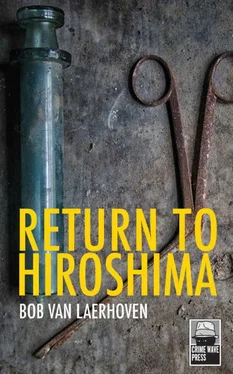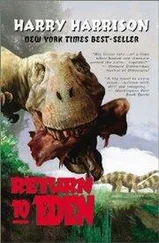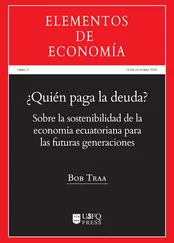Hiroshima – the Suicide Club squat – Mitsuko – night, March 13 th/14 th1995
The night seems never-ending. I’m drifting on an ocean of remembered fragments. Not a raft in sight. If it goes on like this, I’ll drown.
I kept a diary when I was a teenager, as I imagine most young girls did. I stopped after I found I’d written words, even sentences, that I didn’t understand. They were in a foreign language. The handwriting was mine, but the characters that filled the pages were incomprehensible. A chill ran down my spine every time I encountered those perplexing pages. Then it would switch seamlessly to sentences I recognised and remembered, as if the automatic writing had suddenly stopped.
Images of a young woman – me? – biting a man’s shoulder appear in my mind’s eye. The man: the one I called Mayumi?
What was he doing to me?
Or me to him?
When I became aware of my sexuality, and started stealing glances at the torsos of the seamen who delivered provisions to Hashima, I discovered my body could be a source of pleasure, but also disgust and aggression. My father said the seamen were a lesser species. I was above them on the evolutionary ladder. So why didn’t it feel that way? Looking at their young, nimble bodies, their unashamedly hairy armpits, the way they bent over while unloading our supply boats, I felt clumsy and grotesque. In my father’s study, I’d found video tapes of people mating. I watched them when my father was off the island. It struck me that all the actors were blonde Westerners from a distant and unashamedly cold land. Hairy as apes and just as unselfconscious, they smiled and looked into each other’s eyes while copulating. It looked like aerobics. I imagined they were big children, my children. I learned to pleasure myself, but what I enjoyed most was picturing the surprised faces of the cream-skinned people on the screen when I joined them, naked. In my fantasies, they always looked submissive. I despised them for hiding the fact that my body shocked them. They bowed low, cringing like domestic animals, and obeyed my every command. I would tolerate their presence or send them away. It all depended on my mood.
Afterwards, when the fantasies subsided, shame inevitably rushed in, filling me with a sense of my own emptiness.
Hiroshima – the Righa Royal Hotel – Beate Becht – night, March 13 th/14 th1995
Beate Becht has decided the cover photo on the Japanese magazine on her bed is a coincidence. But its resemblance to Satsuo Nakata’s photo from fifty years ago is still chilling. She thinks back to the portraits her father took of the Japanese photographer. She was only a child at the time, but the short and shrivelled man with thin wisps of hair combed carefully over his balding scalp looked exotic to her. Papa travelled all over the world while she stayed behind at boarding school. Beate still remembers dreading the way her father’s Japanese colleague always looked at the camera sideways, as if ashamed, or in the process of hatching some devious plan. Hermann Becht first met Nakata while shooting a photo reportage about the Niigata earthquake victims in 1964, a year before his daughter was born. Hermann had travelled to Japan to cover the Olympics in Tokyo. Shortly before the games were opened, an earthquake struck the Niigata region, killing hundreds of people. Becht, the misery-addict, immediately left for Niigata. Years later, he would tell his daughter bitter-sweet stories about his encounter with Satsuo Nakata in Niigata. Shortly after the nuclear attack on Hiroshima, the Japanese photographer had taken pictures only eight hundred metres away from the epicentre of the explosion. Despite her tender age, Beate understood that her father was jealous of his colleague’s achievement. Nakata had told Hermann Becht an endless stream of stories about what he had seen and heard, which Becht later passed on to his ten-year old daughter without noticing the shock on her face. More than twenty years later, Beate still feels the fear and disgust the stories evoked in her. She gets up from the hotel bed and takes Lens from her suitcase, one of her father’s books, an overview of his career in pictures and text. She studies a self-portrait of Hermann Becht in Chernobyl. He’s standing in a doorway dressed in a shabby-looking radiation suit with the background brightly lit. The suits turned out not to be proper radiation suits at all. The Soviet authorities couldn’t afford the real thing and distributed cheap gas suits instead, which offered little if any protection against radiation. The deceit was kept secret for a long time. Beate hears her father’s voice in its customary flat, drawling tone, as if he’s standing next to her: radiation victims have between twenty-five and thirty bowel movements a day… with blood and slime. The skin on their arms and legs starts to burst…
Beate looks at her father’s eyes in the picture. He seems surprised by something. His right hand is holding the camera like a weapon, barrel pointing upwards.
Beate rolls onto her back and stares at the ceiling. After a minute, she picks up the book again. She finds what she’s looking for; a story Nakata told her father about something he had witnessed in Hiroshima that had etched itself in his memory. A young artist had accosted Nakata outside the ruins of his house and told him what had happened to his family. Hermann Becht had published the story verbatim in Lens to commemorate the suffering caused by the atomic bomb. His daughter has read it many times, always wondering why that particular story had made her decide to go to Hiroshima.
* * *
“I was heavily burnt when I came round. My wife looked terrible too. Our children? I tried to call them. Was that my voice? I was croaking like a frog, unable to utter an intelligible word. I walked a few paces, stumbled over something. A man. I didn’t recognise him; he looked as if he had been roasted in an oven. To my great surprise, he was still alive. ‘Leave me, children,’ he whispered. ‘Run!’ The voice sounded like a dog barking but it was familiar all the same. Only then did I realise it was my father’s voice. But looking at him, I thought: no, it isn’t him, it can’t be. ‘Hurry!” he screamed in his dog voice. It is him, I thought. I ran to get water, but couldn’t find anything, just rubble, and acrid white dust covering everything. Everywhere I looked I saw fire and sooty smoke, and a red glow in the few houses that were still half standing, illuminating them from within like lanterns. I went back, looked at my father’s contorted face, his pain, the throes of death. No, I thought, it’s not him after all. At that moment, my wife tripped – not over an adult, but over the body of our youngest child Masaru, a baby scarcely two weeks old, swollen almost beyond recognition, distended by a force from within. Our infant son was the colour of fried liver. My wife was inconsolable. The blaze from the houses further down the street was getting closer. My wife tore at her hair, and to my horror, clumps of it came out in her hands. Her skin was covered in scorch marks that kept changing shape, abscesses bursting open, a dark, thick fluid oozing out. I dragged her away, screaming that our children must both be dead and that we would die soon too if we didn’t move quickly. She resisted, with a strength I didn’t know she had in her. In the rubble of our house she had spotted some paintbrushes and paint from my studio. The paint in the open pots had evaporated in the heat, but two of the pots were still closed. I saw her staring and stopped trying to pull her away. She had gone insane, there was no other explanation. I wanted to leave her behind. She grabbed my arm. Her voice trembled as she begged one last favour of me, a token of respect for Masaru, to wish him well before we left him behind. I did what she asked; it took me less than a minute. Out on the street, we noticed a stranger. He looked at us with a contorted smile, eyes as hard as marbles. He was taking pictures of the destruction. I don’t know why I approached him. I told him I’d painted a tribute to our divine emperor on the corpse of my youngest son, that I’d done it for my wife, but that I cursed the emperor myself. He nodded as if that was a matter of course, jerked his arm away and walked towards the blaze, to our house, where I saw him bend over the corpse of my dear, innocent Masaru… The camera clicked again and again, and while I knew it wasn’t possible, the sound rang in my ears like shots from a cannon …”
Читать дальше












